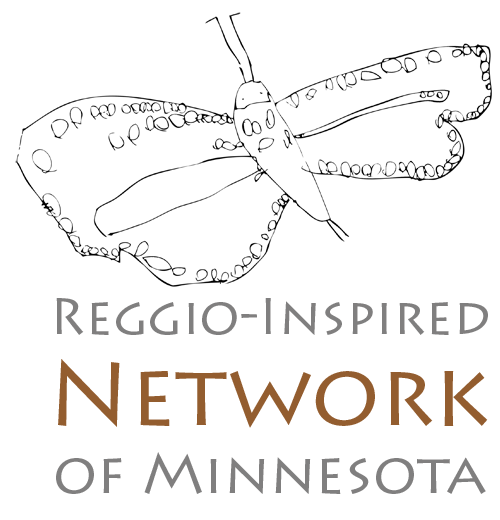|
|
“We are well aware of what is meant by ‘scientific research’ and of the debate surrounding the so-called ‘hard’ and ‘soft’ sciences. But in Reggio we feel that the concept of research, or perhaps better, a new concept of research, more contemporary and alive, can emerge if we legitimate the use of this term to describe the cognitive tension that is created whenever authentic learning and knowledge-building processes take place. ‘Research’ used to describe the individual and common paths leading in the direction of new universes of possibility.” -Carlina Rinaldi | Teachers as Researchers We have learned from Reggio Emilia that the notion of research is a more approachable process than typically comes to mind when the word is used. Research is both a noun and a verb that often involves a compelling question or point of curiosity followed by studying closely, gathering data, digging deeply, hypothesizing, testing and observing followed by reflection, dialogue and developing new understandings. Research, even when begun by a single individual, is rarely a solo endeavor, but is best a process that involves multiple points of view in dialogue with each other.
Resources
LinksVisit our Professional Development page Opal School Blog (Portland, Oregon) Documentation and ArticlesThe Butterfly Project The Butterfly Study Arts 25 Research One Seed, One Child Philosophy Camp Comic "Doing Reggio?" What makes work "Reggio-inspired"? Video Video about Documentation “…Topics emerge, teachers document and wonder and provoke, children respond, and so on in an exquisite, often non-linear dance with layer upon layer of meaning. It cannot be planned, but it can be planned for through the teacher’s disposition to observe, document, provoke, and think, through the preparation of the environment to invite the interactions and encounters through which children’s ideas emerge, and through the development of a culture of conversation and construction of theory.” -Pam Oken-Wright |

